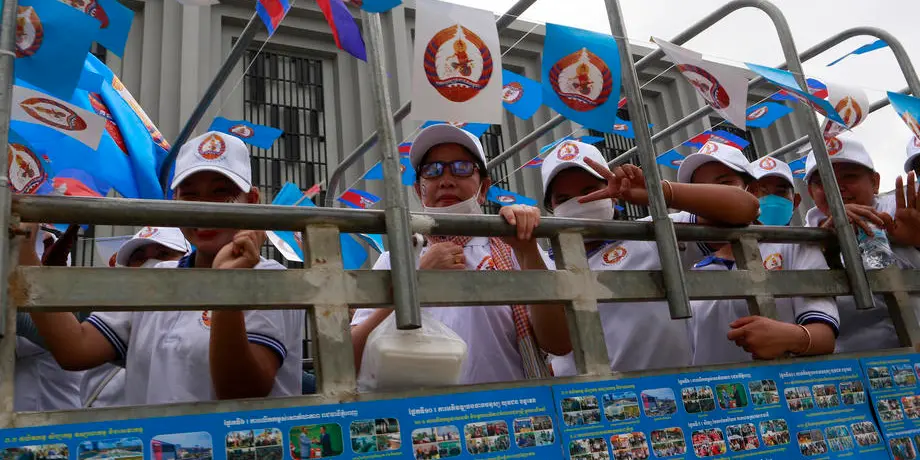
Southeast Asian MPs condemn intimidation of Cambodian opposition ahead of Communal Elections
June 03, 2022

JAKARTA – Parliamentarians from Southeast Asia express their condemnation of the campaign of harassment and intimidation to which the opposition in Cambodia has been subjected during the campaign for the Communal and Sangkat Elections that will be held in the country on Sunday, 5 June.
As Cambodians prepare to vote for their representatives at the local level in 1,652 communes throughout the country, candidates of the Candlelight Party, the main formation in the opposition and the only one positioned to challenge the ruling Cambodian People’s Party (CPP), have been harassed in recent months, often with the reported connivance of local officials or directly by them.
Most recently, on 31 May, the authorities arrested Ir Channa, a former Cambodian activist and naturalized Norwegian citizen, who returned from exile and reportedly joined political activities associated with the Candlelight Party, on spurious charges of conspiracy to commit treason. Meanwhile, the National Election Committee (NEC), controlled by the CPP, has removed more than 100 candidates from the party, leaving the ruling party with no serious competitors in the most important constituencies, including the capital, Phnom Penh.
“It is impossible to hold free and fair elections in an ongoing climate of persecution against the opposition. Even if 17 parties have been authorized to run, these polls cannot be regarded as an exercise in pluralism and democracy when the CPP led by Prime Minister Hun Sen is not allowing anyone who can challenge their power to campaign freely and safely,” said Maria Chin Abdullah, Member of Parliament in Malaysia and APHR Member.
The campaign of intimidation against the Candlelight Party includes the vandalization and removal of its signs in several provinces and judicial harassment on trumped-up charges against many of their candidates.
The current iteration of the Candlelight Party emerged from the Cambodia National Rescue Party (CNRP), which was the main opposition party until it was arbitrarily dissolved in 2017. One year later, the CPP won all 125 seats in parliament at the national elections held in 2018, turning Cambodia into a virtual one-party state controlled by Hun Sen, in power since 1985.
“The intimidation of the opposition we are witnessing now is nothing new. It is part of a long pattern in which Hun Sen and his party have maintained and increased their control over Cambodia, closing the space for opposition and rights defenders to dissent without fear of reprisal. This does not bode well for the future of democracy in Cambodia. The outcome of this local election will pave the way for next year’s national elections and will determine who will control the country’s overall political power.” said Ms. Abdullah.
Apart from persecuting the political opposition, in recent years the Cambodian government has silenced the independent media, and increased its control over civil society.
The many authoritarian restrictions, including against the election monitoring work by independent civil society organizations, will likely result in a missed opportunity to have elections which honor the constitutional rights of the citizenry and the people’s power to choose their representatives in a free and fair environment.
Also of note is the regime’s passing last year of a Sub-Decree on the Establishment of the National Internet Gateway, through which all internet traffic would be routed through a single “gateway,” enabling the authorities to monitor any online activity. For now, the gateway plan appears to be put on hold, but this and other recent restrictive legislation has raised serious concerns among human rights organizations.
“Cambodia’s neighbors and the international community at large should maintain a critical eye on the country’s electoral developments and not be fooled into believing that the elections this Sunday will be a democratic exercise. They should put pressure on Hun Sen and his government to take Cambodia back into a democratic path, and see the polls as what they are: another attempt by the CPP to legitimize its increasingly dictatorial rule,” said Ms. Abdullah.
ASEAN Parliamentarians for Human Rights (APHR) was founded in June 2013 with the objective of promoting democracy and human rights across Southeast Asia. Our founding members include many of the region's most progressive Members of Parliament (MPs), with a proven track record of human rights advocacy work.